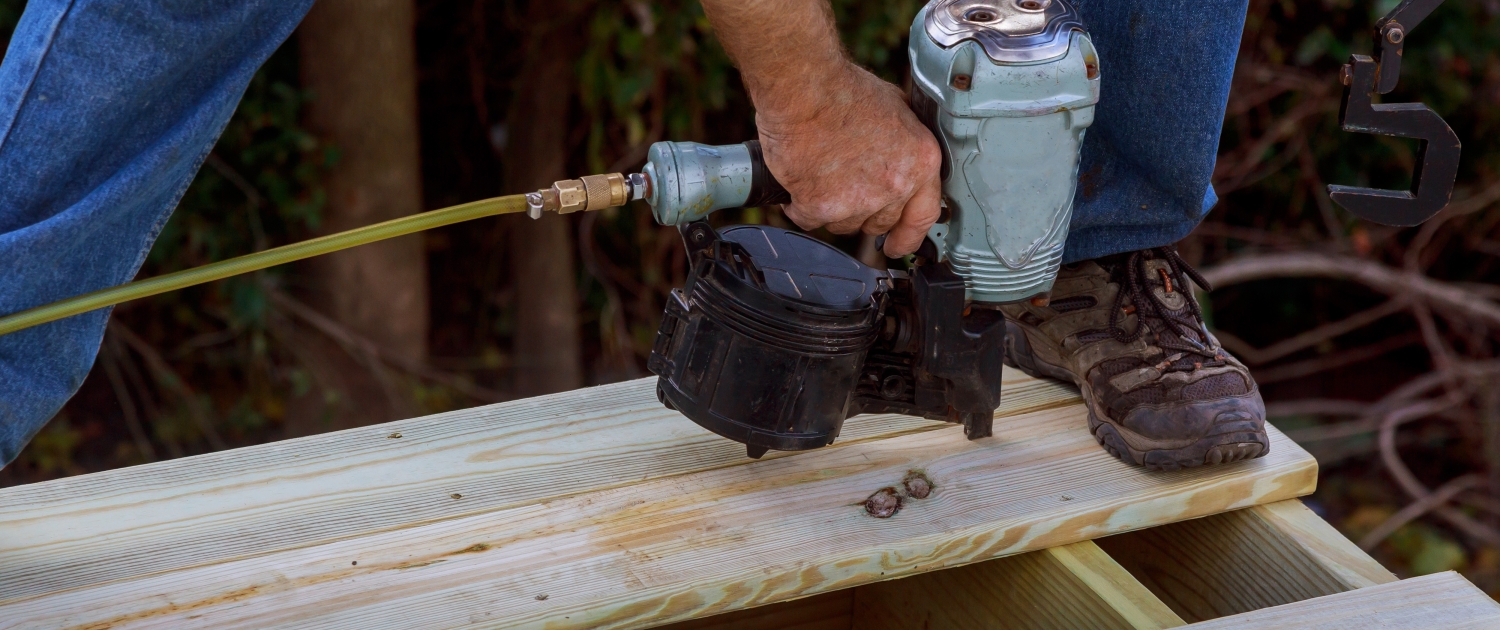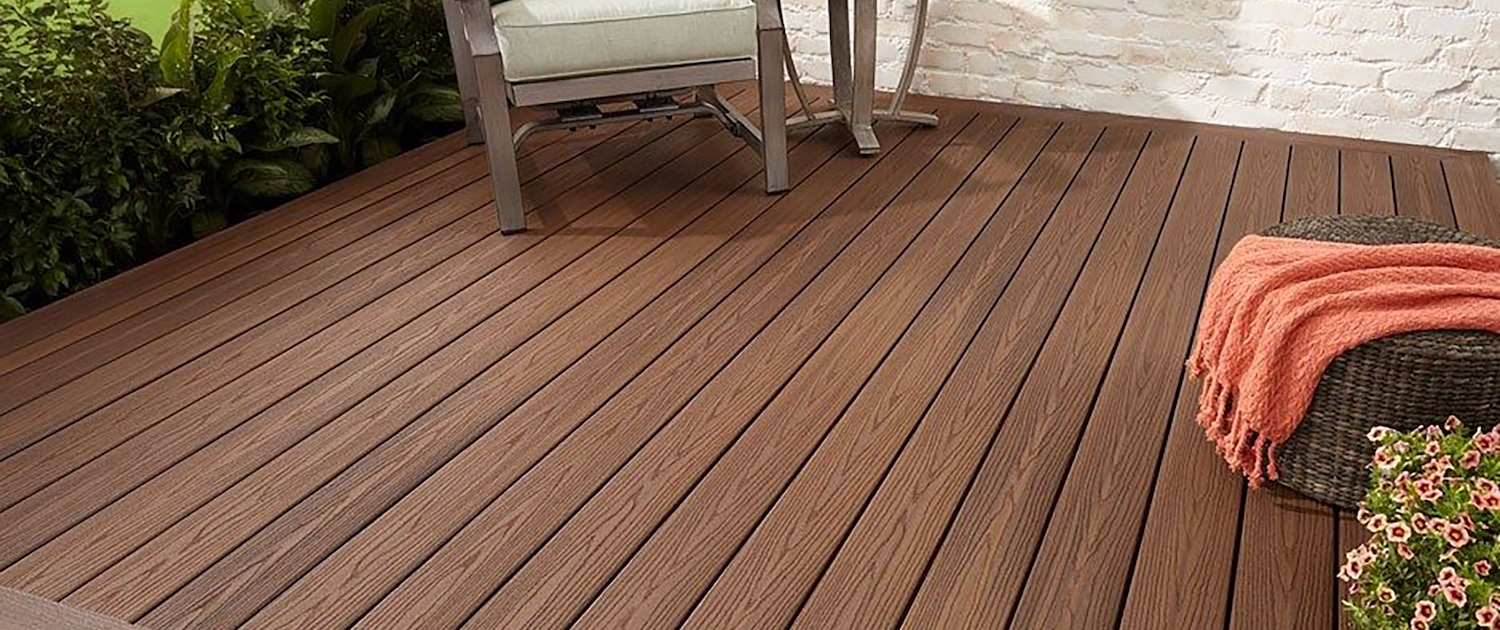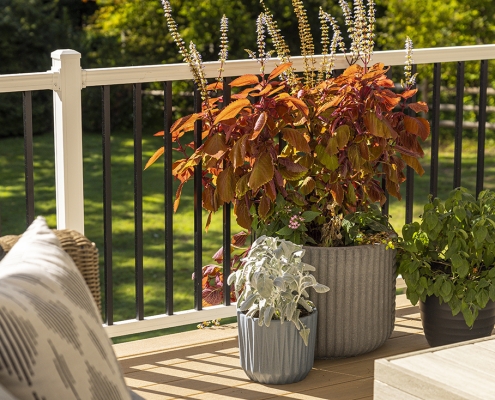 https://dutchway.com/wp-content/uploads/2025/01/DutchWay_72GraysonSemiPrivacy_Web_21.jpg
600
1300
dutchway_admin
/wp-content/themes/dutchway-enfold-child/images/dutchway-logo.svg
dutchway_admin2025-01-24 11:21:332025-01-24 11:36:11From Start to Finish: A Typical Timeline for Fence Installation
https://dutchway.com/wp-content/uploads/2025/01/DutchWay_72GraysonSemiPrivacy_Web_21.jpg
600
1300
dutchway_admin
/wp-content/themes/dutchway-enfold-child/images/dutchway-logo.svg
dutchway_admin2025-01-24 11:21:332025-01-24 11:36:11From Start to Finish: A Typical Timeline for Fence InstallationAre You Dreaming Of A New Deck?
Outdoor decks make a great extension of your indoor living space. If you’re thinking about building a deck or updating an existing one, it’s important to hire a skilled contractor and select quality materials, so the job is done right. But with so many decking materials on the market, you may be hesitant to make any quick decisions. Dutch Way in Harrisonburg has decades of experience in the decking industry, so we’re equipped to assist you with your project.
How To Choose The Best Decking Material.
One thing to note is that most decks are built using pressure-treated lumber for the structural framing, which you don’t usually see unless you’re underneath it. When it comes to selecting the decking surface, you have endless wood and composite material options. Let’s explore the top choices.
Wood Decks
Traditionally the go-to material for all decks, wood delivers many benefits, but it’s also prone to rot and damage from insects. It requires regular maintenance which can be costly and time-consuming. Nonetheless, due to its low cost and availability in big box stores, it continues to be a popular choice for builders and homeowners alike. If a wood deck is a must-have for you, there are a wide range of wood species available, so consumers can select the hardiness and price point that works best for them.
Pressure Treated
Pressure-treated boards are soaked in chemicals under pressure that make them resistant to rotting and insects. This process causes the wood to take on a greenish-brown tint, but it can be stained to achieve a more attractive color. Prone to warping and splintering, pressure-treated boards require regular maintenance, such as sanding and refinishing to preserve the appearance and prevent deterioration.
Natural Wood
Cedar and redwood are naturally beautiful and resistant to rotting, so there is no need for chemical treatments. They can be stained easily and are long-lasting, but cedar and redwood cost around three times more than pressure-treated decking boards.
Exotic Wood
For a high-end natural material, ipe (pronounced “ee-pay”) is a hardwood that is resistant to rot and makes a stunning statement. Due to its density, it can be tricky to work with, usually requiring predrilling of holes and special tools. Beautiful, natural wood comes with a hefty price-tag—ipe is about four times more expensive than cedar or redwood.
PVC and Composite Decks
There’s a reason many consumers view composite decking as the premium choice. Through years of trial and error, manufacturers have resolved the pain points that come with natural wood decking. Man-made composite decks are virtually maintenance-free and won’t easily succumb to wear and tear. You don’t have to sacrifice the beauty of a wood deck—in fact, there are hundreds of styles and colors to choose from, so you’ll have no problem achieving the design aesthetic you’ve always dreamed of.
Made With An Eco-Friendly Production Process.
Since composite and PVC decking is man-made, some may argue that it’s less environmentally friendly than wood. But when you consider the longer lifespan of a composite deck, combined with the fact that most manufacturers produce their decking boards from recycled wood and/or plastic, it turns out that composite decking is in fact, very eco-friendly. When shopping for composite decking, look for options free of toxic chemicals, and backed by a 40+ year warranty.
Composite
Made up of a blended wood and plastic formula, composite decking is strong. It resists fading and splintering, and it only needs to be cleaned every couple of years to prevent mold and mildew. Some manufacturers such as Fiberon add a strong cap layer over a composite core to increase durability. One drawback of composite decking is its lack of rigidity. It’s more flexible than wood therefore it may require a shorter joist distance to maintain the deck structure.
Cellular PVC
Composite, by definition, means “made of various parts or elements.” Although cellular PVC decking is often categorized as a composite option, it is actually made of one material—plastic. PVC like Wolf Decking contains no organic material to rot, mold, or swell. It can even be bent using heat to create impressive, curved deck designs. Due to its extreme durability and versatility, PVC is one of the more expensive options for decking materials.
Quality Decking Is Worth The Investment.
As with most investments, you’ll spend more upfront for a longer-lasting, higher-quality decking product requiring zero maintenance. On the flip side, if you opt for a lower price tag in the beginning, you can expect to sink some money into upkeep throughout the lifespan of your deck.
Contact Harrisonburg Dutch Way For Your Deck.
Dutch Way carries an extensive lineup of quality decking materials, and we can guide you through the process from start to finish. Let’s get your project started by discussing the best options for wood and composite decks!
Meet Dale
Meet James
Meet Stacy
Meet Angela
Meet Mark
Customer Reviews
Our customers love
our work. Here’s why.
Bridget Smith
Dutch Way came this morning to begin the process of our vinyl fence. They have been extremely polite and easy to work with, knowledgable, patient and professional as we changed our minds a few times about what we wanted. Our fence posts are just starting to be put in, but I would already highly recommend them! Can’t wait to see the finished product.
Ryan Kline
Only place to go if you are looking for a quality fence at a reasonable price. The staff are professional and care about doing a quality job and making the customer happy. Thanks for everything Dutch Way! I wouldn’t use anyone else!
Ricky Porco
Dale and the team at Dutch Way are consistent with exceptional customer service. I always appreciate the personal attention and recommend Dutch Way to anyone in need of their services.
News
Get the inside scoop about the newest trends, products and techniques in the fencing, railing and decking world.









